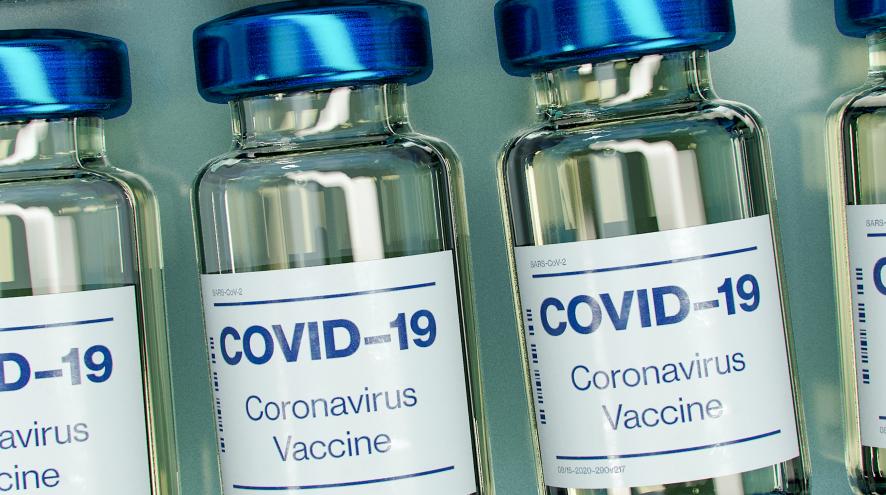COVID-19 Vaccines
Learn about the COVID-19 vaccine with Dr. Melissa Andrew, skilled geriatrician and researcher. Dr. Andrew has a Master's in Public Health and expertise in research on vaccination effectiveness. She's part of the Canadian Centre for Vaccinology and COVID-19 research teams at Dalhousie University.

Stock photo. Does not depict an actual COVID-19 vaccine vial.
Originally published in the winter 2021 issue of In the Loop.
Our InfoLine staff are hearing many questions about the COVID-19 vaccine. While vaccines are not our primary area of focus, we think it’s important to keep informed. The good news is Canada has now approved two COVID-19 vaccines – Pfizer/BioNTech and Moderna – and more vaccines are likely to be coming in the near future. There is a lot of information about the vaccines and it is hard to keep the ever-evolving information straight. Here is what the Mayo Clinic says about COVID-19 and vaccination:
“Getting a COVID-19 vaccine can help protect you by creating an antibody response in your body without your having to become sick with COVID-19.
A COVID-19 vaccine might prevent you from getting COVID-19. Or, if you get COVID-19, the vaccine might keep you from becoming seriously ill or from developing serious complications.
Getting vaccinated also might help protect people around you from COVID-19, particularly people at increased risk of severe illness from COVID-19.”
We have asked Dr. Melissa Andrew to help us answer questions about older adults and the COVID-19 vaccines. Dr. Andrew has a unique interest on this topic. In addition to being a skilled geriatrician and researcher, she has a Master's in Public Health and expertise in research on vaccination effectiveness. She's also part of the Canadian Centre for Vaccinology and COVID-19 research teams at Dalhousie University, and we are proud to have her as a board member.
This is what we know to date based on studies published in well-respected journals of medicine (see references below):
- The vaccines are very effective against COVID-19, including participants in the senior group (above age 65.) who volunteered in the studies, preventing over 90% of COVID-19 illnesses. Getting a vaccine will be a strong protective factor against getting COVID-19.
- Although these vaccines tend to cause some mild reactions, like sore arm and fatigue, in a lot of people who receive them, in general older adults experience less of these side effects than younger people. This is reassuring if you were worried that getting the vaccine would come with a lot of side effects.
- The research trials highlight the importance of getting two dosages of the vaccine, three or four weeks apart, to provide the optimum protection. The immune response takes two weeks to develop after each dose is given and is strongest after the second dose. So, it is important that an individual receives both dosages as recommended by the public health vaccination program.
- Once vaccinated, we still need to take precautions. Hand washing, wearing masks in public, monitoring for symptoms and staying home if we are sick, and being tested if we have signs of COVID-19.
Vaccinations have begun to roll out in Nova Scotia with the plan for everyone to have access to a safe, effective and free COVID-19 vaccine in 2021. Priority is being given to and front-line health workers, residents and staff of nursing homes, assisted living and other long-term care settings and registered caregivers for people in long term care facilities.
To find out more about COVID-19 Vaccination, visit www.canada.ca/en/public-health/services/diseases/coronavirus-disease-covid-19/vaccines.
For more in-depth information visit: www.nejm.org/do/10.1056/NEJMdo005933/full and
